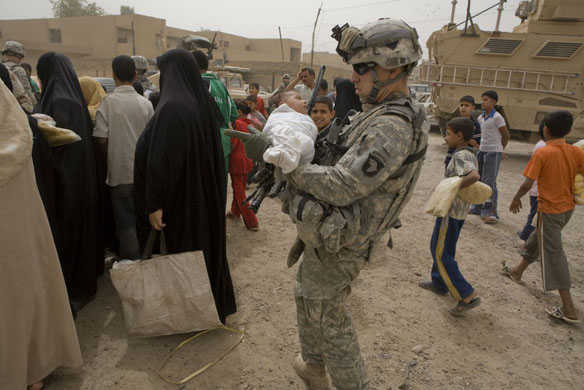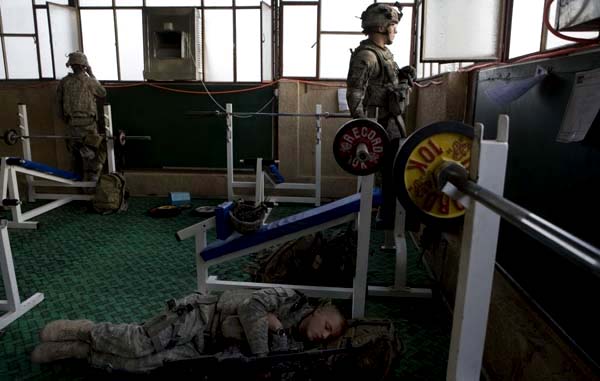A program from Wisconsin Public Radio's To the Best of Our Knowledge entitled "East Meets West: Encountering Islam" and "East Meets West: A Culture in the Crossroads" has stories on how some individual Muslims are bridging the cultures. Among those featured are Kumail Nanjiani, Tariq Ramadan, Lupe Fiasco, and Ayaan Hirsi Ali.
Kumail Nanjani is a standup comedian living in Chicago who was born and raised in Pakistan. He has left Islam, but he began questioning the religion as a child. He was told that every missed prayer, in hell the punishment would be a mountain thrown on your back. He took this literally and began to wonder.
Why my back? If it were a mountain, it wouldn't matter if it were on my back. How big is this mountain? Could it be just a plateau? I could take a plateau. And how would this mountain end up on my back? Would there be a giant who threw the mountain at me? Overhand or shot put style? If there were a giant who was strong enough to throw mountains, why wouldn't he punch me? That would really hurt.
These questions naturally led to other ones and more things that didn't make sense. Nanjani gave his parents a DVD of his show. They had known previously that he had left Islam, but the video finally convinced them. On the one hand, they were happy to know that he wasn't an angry former Muslim. On the other hand, they were perplexed because he still seemed like a moral, caring person and couldn't understand how someone with those values could not be Muslim.
Tariq Ramadan is a Swiss-born philosopher who travels throughout the Islamic world trying to build bridges between European Muslims and conservative clerics. In the show he describes himself as:
I'm Swiss by nationality, European by culture, Egyptian by memory, universalist by principle, and Muslim, of course, by religion. These are five dimensions of my identities, but over all I am universality by principle.
Like Martin Luther, he is appealing to clerics to go back to the basics and use the Quar'an and Mohammad's life as the starting point for Muslim theology. This approach, he argues, would lead to a more dignified, simplified Islam, one that makes it easier for Muslims to participate in a modern world by providing a means for them to make decisions about how to live. In other words, to ask and answer one's own questions using primary sources, rather than following directives from an imam. He has advocated for a moratorium on stoning, death penalty, and corporal punishment in Islam. While he is personally against these punishments, Ramadan was asking for a moratorium to open a dialogue with Muslim scholars and clerics worldwide.
Speaking of advice, I heard on the BBC World Service on Saturday morning that one could telephone a call center in Abu Dabi, UAE to obtain advice on religious issues. If I recall correctly, this service is organized by the government of the emirate. They employ an esteemed panel and there is an elaborate process for arriving at the final advice, or fatwa. I couldn't find the story on the BBC web site, but there is an article on the Gulf News web site.
This brings us to Dubai, one of the emirates in the UAE, which will be the topic of my next post.




